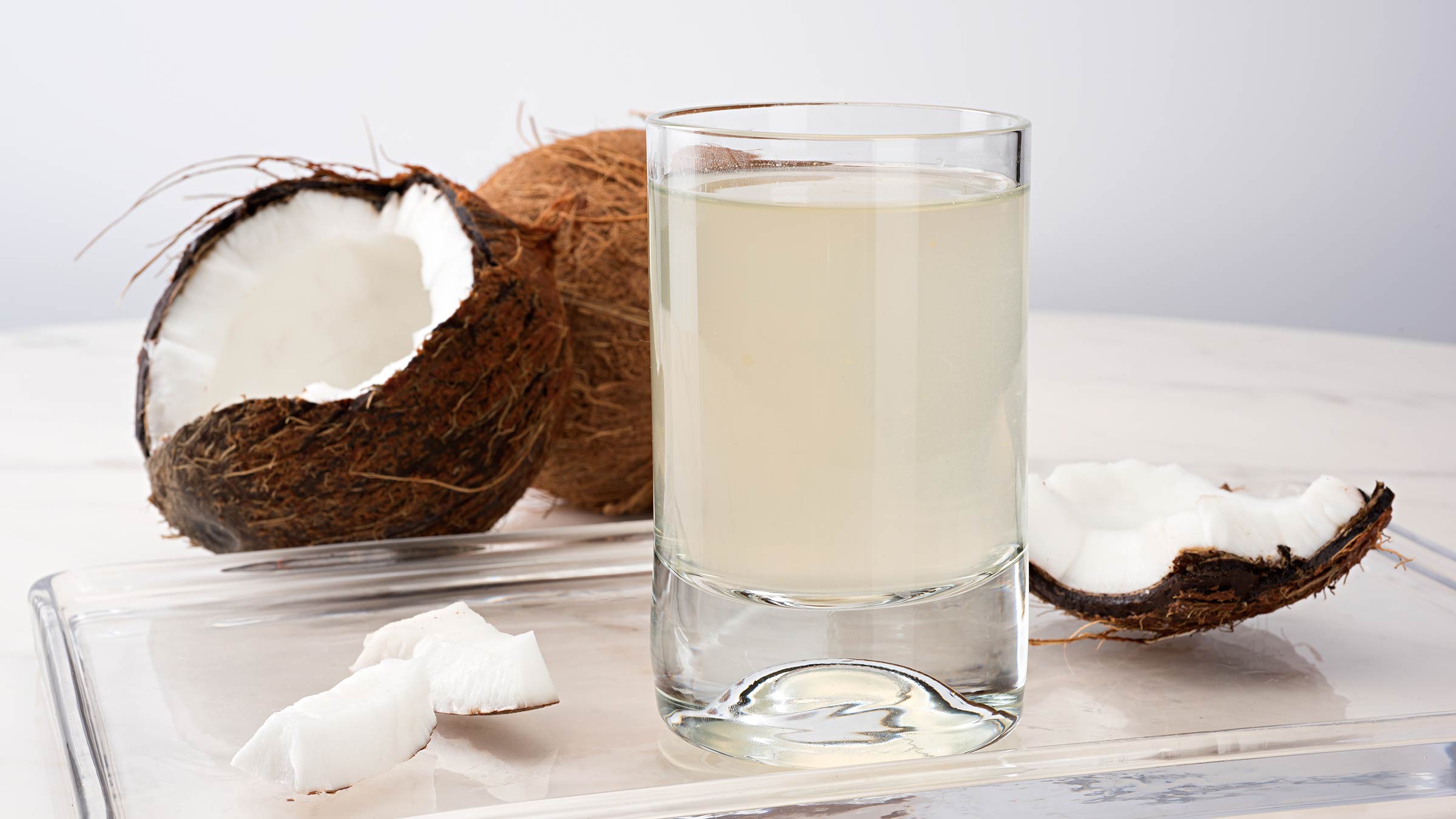
In recent years, coconut water has become a trendy beverage that’s now a staple everywhere from health food stores to fitness studios.
Despite the health halo this beverage has, current research doesn’t support the hype about coconut water claims and health benefits. Here’s what you need to know about coconut water.
What’s in coconut water?
Coconut water is the clear fluid found inside coconuts — I like to tell people to think of it as coconut juice. Coconut milk, on the other hand, is a mixture of coconut water and grated coconut.
Coconut water can be a part of a low-calorie or low-sugar diet as it is low in calories at 45-60 calories per cup with 11-12g of sugar. Coconut water contains plant compounds and electrolytes such as potassium, sodium, magnesium and phosphorus. It should be noted that electrolyte content varies based on the maturity of the coconut, so amounts of electrolytes in coconut water will vary.
Store-bought coconut water has 30mg of sodium and 470mg of potassium per cup. Coconut water is much higher in potassium than other electrolytes.
What health benefits does coconut water have?
Many Americans don’t consume enough potassium in their diets, so coconut water (and coconut milk) might help us reach those dietary needs. If you’re thinking about turning to coconut milk instead of water, keep in mind that this beverage contains some sodium, which is typically over-consumed in our diets.
Due to the fluid and electrolyte content of coconut water, some research shows that coconut water might be beneficial for rehydration after fluid losses due to illness or sweat losses during exercise. However, there’s no evidence that it’s better than other rehydration solutions. Some analysis suggests that the electrolyte content in coconut water alone isn’t adequate for optimal rehydration.
Because of its low sugar content compared to other juices and higher sugar beverages, coconut water can be a good beverage option for people with diabetes. However, the sugar in this drink can add up over time, so it’s important to control the portion consumed per day.
There’s been some research showing that coconut water can help lower blood pressure in those with hypertension. The potassium in coconut water helps to counteract the blood pressure boosting effects of sodium. However, potassium from food sources also provides a variety of different vitamins and minerals. Your primary source of potassium should come from a variety of foods — not just coconut water.
Should coconut water be used pre- or post-workout?
Electrolytes are needed to maintain normal blood volume and to prevent dehydration, plus they can help reduce fatigue, stress, muscle tension and poor recovery from exercise. So, coconut water can help prevent symptoms tied to dehydration resulting from water or electrolyte loss, such as fatigue, irritability, confusion and extreme thirst.
However, coconut water is higher in potassium and lower in sodium and sugar than most athletes need for recovery. Sodium is the main electrolyte lost in sweat, so coconut water alone may not be the best beverage to replace sodium losses after exercise. Research shows that coconut water might be better than water alone for recovery but is not superior to other sports drinks.
Don't rely on coconut water alone for recovery after exercise. You should be refueling post-workout with adequate fluids and electrolytes to rehydrate, and getting enough carbohydrates and protein to replace your glycogen (stored carbs) stores and repair muscles.
Who should avoid coconut water?
I’d recommend anyone with a chronic kidney disease avoid consuming large amounts of coconut water. As mentioned before, coconut water has high potassium content. A large intake of potassium in kidney patients can lead to life-threatening hyperkalemia (too much potassium in the blood).
What if I’m allergic to tree nuts?
This can create confusion, as the FDA considers coconut a tree nut, so products containing coconut will carry a warning about containing tree nuts. However, allergists generally consider a coconut to be a fruit, not a tree nut. So people with tree nut allergies would not automatically have a reaction to products containing coconut.
That said, some people are allergic to coconut specifically, and if you have a tree nut allergy, it’s advisable that you consult with your allergist to be tested before consuming anything containing coconut.

Healthy eating is within your reach!
Make an appointment with our dietitians or nutritionists.
Schedule an appointment




